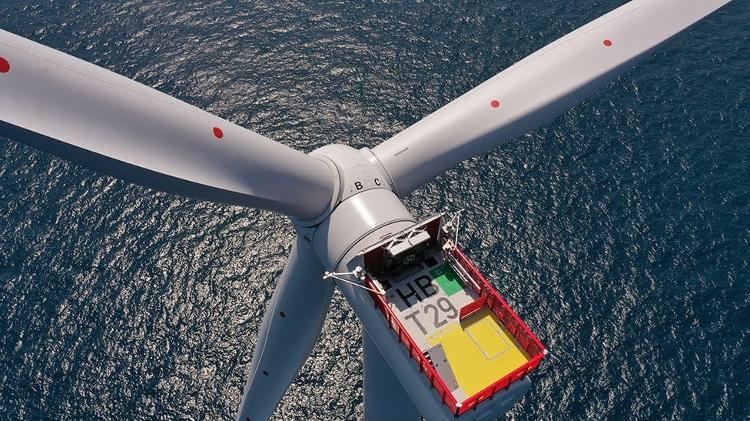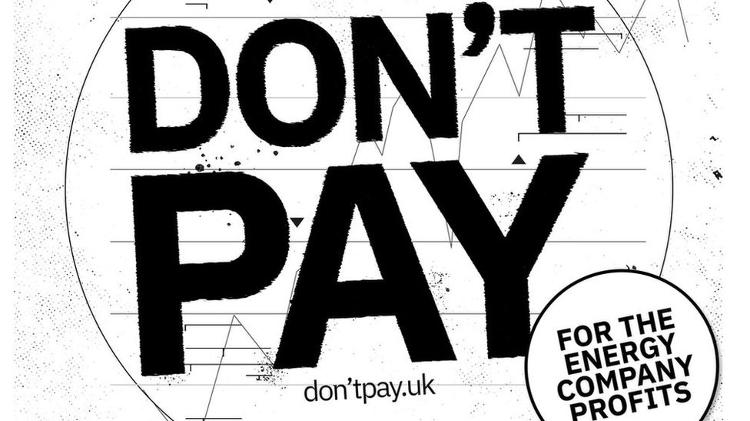The UK is still heavily dependent on imports of natural gas, the price of which has exploded in the international market due to the war in Ukraine. Therefore, gas and electricity prices for families will triple this winter.
The world’s largest offshore wind farm is fully operational in the North Sea, some 90km off the UK coast, and could provide some relief from the severe energy crisis the country is facing.
The project, called Hornsea 2, could generate enough electricity to power nearly 1.3 million homes.
Ten years ago, renewable energy sources accounted for 11% of all energy produced in the UK. By 2021, renewable energy accounted for 40% of the total, mostly wind.
But the UK is still heavily dependent on imports of natural gas, the price of which has exploded in the international market due to the war in Ukraine. Thus, in the winter of this year, gas and electricity prices for households will be three times higher than in the previous winter.
But the wind mega project has not started yet. It is part of a giant wind farm under development by energy company Orsted and took five years to complete.
Hornsea 2 has earned the title of “largest in the world” from its neighbor Hornsea 1 and covers an area of 465km² (almost the size of the city of Porto Alegre). But it will soon lose its lead over other projects under construction in the North Sea.
Each of Hornsea 2’s 165 turbines is approximately 200 m above sea level and has 81 m propellers.
According to project manager Patrick Harnett, each spin takes six seconds and produces enough energy to power a home for a day.
Over the last decade, the size of wind farms and turbines has grown to the point where the cost of energy produced by these projects has dropped.
Simon Evans of Carbon Brief, a portal that monitors the renewable energy market, says that currently the cost of power produced from natural gas is nine times higher than that of wind power.
In July of this year, the UK held an auction to build projects with the potential to generate 11 gigawatts of renewable energy, enough to power 12 million homes.
This measure is part of the British government’s goal of zeroing carbon gas emissions associated with power generation by 2050, promoting some form of “decarbonisation” of the electricity system by 2035 (severe reduction in production with fossil fuels such as natural gas and coal mineral).
The global energy crisis, which was exacerbated by Russia’s invasion of Ukraine, intensified the search for alternative energy sources to natural gas. After all, about 40% of Europe’s imports of natural gas comes from Russia, a dependency that raises governments’ concerns in the current war scenario.
But there are no easy or quick solutions.

Image: Orsted
For example, offshore wind power generation projects take about five years from governmental authorization to full operation. However, there are some who say that all these processes and decisions should be accelerated given the scale of the crisis.
“Onshore wind power is traditionally the cheapest form of energy and you can get projects up and running within a year,” Renewable UK’s Melanie Onn told the BBC.
“But we’re not doing that right now because current processes allow a single person to (legally) stop an energy farm. So the government needs to take action and prioritize energy.”
‘national crisis’ in energy
Rising energy prices point to a tough winter in the UK.
“The energy bill situation is a national crisis of the magnitude of the covid pandemic,” consumer expert Martin Lewis told the BBC, arguing for the government to double down on its subsidy to make up for the massive increase expected.
According to a survey conducted by price comparison site Uswitch, nearly a quarter of households have already paid off their debts, which is expected to increase this winter.
“Half of British households will face energy poverty this winter if the government does not act to mitigate the rise in bill prices,” Philippe Commaret, managing director of EDF Energy UK, warned in an interview with the BBC.
According to him, “a disastrous winter” is approaching for more than half of British households who will have to devote 10% or more of their income to energy.
Gas and electricity prices for households will be three times higher this winter than in the past, according to forecasts from one of the country’s largest energy providers.
Meanwhile, small business owners newly dealing with the ravages of the Covid-19 pandemic are struggling to keep their doors open.
In retirees, this situation may worsen. Graham West, 68, has turned to food banks for the past six or seven weeks after seeing food and energy costs rise. “I wouldn’t be eating otherwise,” she says.
For now, and until the government takes effective action, the Don’t Pay campaign, launched in June, urges the British to boycott paying their electricity bills from 1 October, when energy prices soar.

Image: don’t pay
So far, more than 110,000 people have joined the initiative online and have agreed to cancel their automatic payments.
The Don’t Pay movement said the support received so far “shows anger and frustration at a corrupt energy system that needs to be drastically transformed for the benefit of the citizens”.
The organization is demanding that the bills be reduced to a reasonable level and claims that millions of people will not be able to pay their energy bills this winter. For them, this campaign is the only way to force the government and energy companies to take action.
The group says it will take no action unless 1 million people apply, and is conducting “extensive consultations” with legal and personal debt experts.
source: Noticias